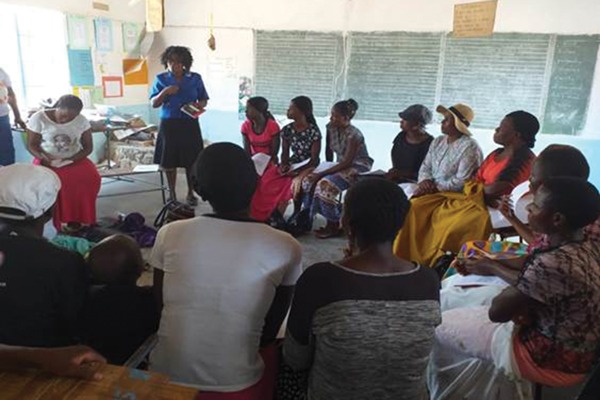Source: Women are key in UN’s conflict and peacebuilding missions – NewsDay Zimbabwe
Pretty Mubaiwa
OCTOBER marked 21 years since the United Nations Security Council adopted Resolution 1325 focusing on women, peace and security.For the first time, gender and security were linked, highlighting the importance of including and increasing the participation of women in post-conflict, peace-making and peacekeeping activities.
It is important to take stock of the effect of resolution 1325, in the UN and its agencies. The biggest question amid the past scandals involving women, peace and security in UN peacekeeping missions and, recently, the World Health Organisation, is how can the UN ensure that these resolutions and standards reflect in their work?
The UN has been plagued by scandals involving crimes of sexual violence and discrimination against women by peacekeeping forces in Haiti, South Sudan, the Democratic Republic of the Congo, East Timor, Liberia, Bosnia and Herzegovina, among others.
It is horrifying to think that these abuses are imposing a double trauma on the survivors of violence.
One of the key tenets of resolution 1325 is the important role women play in conflict prevention and resolution and in peacebuilding and, most notably, the need to increase their role in decision-making in these fields.
Article 1 of this resolution emphasises this point. It urges all member States to ensure increased participation of women at all decision-making levels.
Research by the UN has shown that this contributes to intentional decision-making that recognises people’s different needs and vulnerabilities.
The UN has been described by some scholars as the “world’s largest man’s club”.
They argue that aside from clerical and translation appointments, fewer women have been employed in the UN at the decision-making and professional staff levels.
Even though some organisations in the UN have achieved gender parity, in 2020, women constituted 6,6% of all uniformed military, police and justice correction personnel.
The UN has continued to try to shed light on abuses and to ensure that they are prevented.
UN Secretary-General António Guterres has set the tone by stressing that no one should commit any crime of sexual violence or exploitation under the UN flag.
Additionally, the organisation has developed Standards of Conduct for peacekeeping missions based on three principles — respect for local laws, customs and practices; treating host countries’ inhabitants with respect, courtesy and consideration; and acting with impartiality, integrity and tact.
These standards show the aspiration of the UN to curtail abuses and crimes of violence against women and children committed by members of its missions.
The UN has developed a three-pronged strategy to address misconduct — prevention of misconduct, enforcement of Standards of Conduct and remedial action.
This strategy shows an understanding that the best response is to set strong and efficient preventive measures that are reinforced through the Standards of Conduct.
Despite this, the problem persists. The UN audits show how their actions to protect, prevent and punish crimes of sexual violence and exploitation by their staff and forces are falling short of the letter and spirit of resolution 1325.

COMMENTS